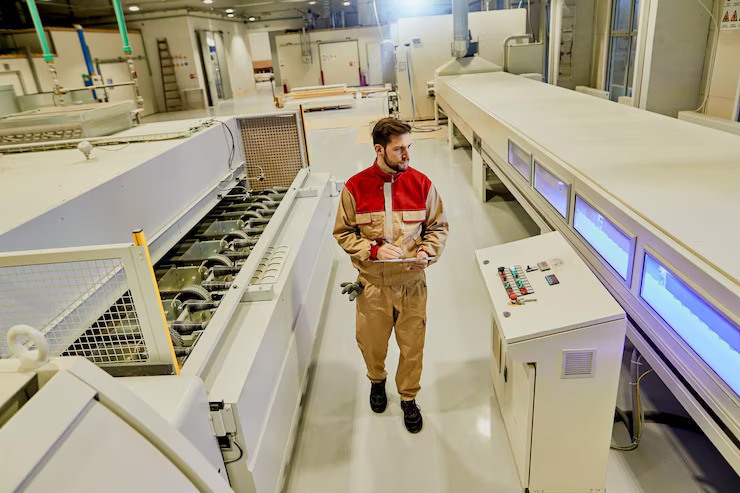The computerized maintenance management system (CMMS) is a specialized management software tool that performs a host of advanced functions including the tracking of O&M activities and other management functionalities. It also helps a maintenance team to keep a record of all the assets that they are responsible for, maintain a historical record of the tasks that they perform, and schedule & track maintenance jobs as well.
Hence CMMS software is a database application that helps to streamline and track each and every aspect of an organization’s maintenance operations. As the operations grow more complex and larger, the need for maintaining a centralized database system becomes absolutely essential.
CMMS Software Capabilities
CMMS systems can automate most of the logistic operations performed by maintenance management and their team. Thus CMMS systems replace the tedious and conventional manual maintenance tracking process. Based on the complexity of the system chosen, a typical CMMS system offers the following functions
- Generates and prioritizes work, and tracks the equipment or assets.
- Keeps a track of all unscheduled and scheduled maintenance activities.
- Tracks historical records of all work orders which are already processed.
- Stores the information of all technical procedures or documentation of every component.
- Stores maintenance procedures and warranty information of each and every component.
- Creates Real-time reports of ongoing job activities.
- Generates preventive maintenance work order procedures.
- Tracks resource, budget, and labor cost for every component. Also, keeps a record of the shortest, median, & longest times required to complete a work order.
- Supports inventory control with an automated many capabilities.
- Allows outside service call and dispatch capabilities.
Many advanced CMMS software programs can also integrate with existing management systems and energy management & control systems (EMCS).
Who Uses CMMS Software?
CMMS software systems can assist maintenance managers, operations managers, and other workers to perform their daily ongoing tasks more efficiently by providing real-time data on their assets. The concept of Maintenance Management Systems was introduced around 1970s and they were primarily used in larger manufacturing plants. With the proliferation of personal computers & laptops, the origin of the internet & web-based platform, mobile internet access, organizations and businesses across every industry are currently implementing CMMS. Overall, CMMS systems are ideal for any industry where efficient workflow management, equipment uptime, monitoring facility and operation costs are considered as a key paramount.
More precisely, CMMS systems, are primarily used by facility managers, maintenance managers, technicians, mechanics, COOs, and CFOs. CMMS allows a flexible platform, that is applicable to a variety of industries.
How CMMS is becoming useful in various industries:
How CMMS helps the Manufacturing industry:
Machine downtime is a very common issue for production line and plant managers. There is no easy way to overcome this. And it results in a huge downtime with unutilized resource costs, a delayed manufacturing process, failure to deliver orders on time. But CMMS software systems provide preventative maintenance functions, optimized spare parts inventory levels, improved scheduling & planning, reduced resources, and regulatory compliance. That’s why manufacturers prefer to use CMMS software.
How CMMS helps in Educational Institutions:
Universities, college campuses, and schools also use the numerous benefits of computerized maintenance management software. Educational institutions need to adhere to and comply with many strict regulations and rules. These jobs become easier, more hassle-free and convenient by using CMMS software. The benefits are actually many for example : ensuring preventive maintenance, faster response time, improved workflow management, improved asset tracking & reporting, better management, and an improved performance.
How CMMS helps in the hospitality industry:
Customer satisfaction is the topmost priority in any hospitality industry. Whether it’s a restaurant, casino, hotel, or a resort, augmenting the customer’s experience is the biggest priority. Facility managers in this industry strive their best to ensure that their equipment and facilities are up and running smoothly round the clock. The CMMS can benefit the hospitality industry with a managed daily inflow, improved asset tracking, improve response time, minimal equipment downtime, lower maintenance costs etc.
How CMMS helps in Facilities Management (General):
The Customers always need facilities to be available and running smoothly all the time. In today’s age, the facility and maintenance managers can’t keep track all phone calls, e-mails, and spreadsheets manually. CMMS software is the ultimate solution that helps them to handle these problems easily with an improved management, prompt response time, less downtime, extending the longevity of valuable assets, better coordination within maintenance department, and an improved accountability and transparency etc.
Advantages of Azzier’s most advanced CMMS technology :
One of the potential benefits of using Azzier’s CMMS is the elimination of paperwork and conventional manual tracking activities. The Azzier’s CMMS software system is compatible with any platforms such as PCs, mobiles, or tablets. It facilitates any industry to become more productive. It should be noted that the primary functionality of a CMMS lies in its capacity to collect and store data in an easily retrievable format. Hence it helps the O&M managers by providing the best information to increase the operational efficiency within a facility.
Advantages of Azzier’s most advanced CMMS technology:
- Detection of imminent problems before any failure occurs resulting in less downtime and customer complaints.
- Achieving a greater level of scheduled maintenance activities that facilitates a more effective use of resources.
- Better inventory management and a better decision-making approach.
- Maintaining an optimal equipment performance which results in a longer equipment lifetime.
- A very effective & affordable alternative to on-premise business applications.



